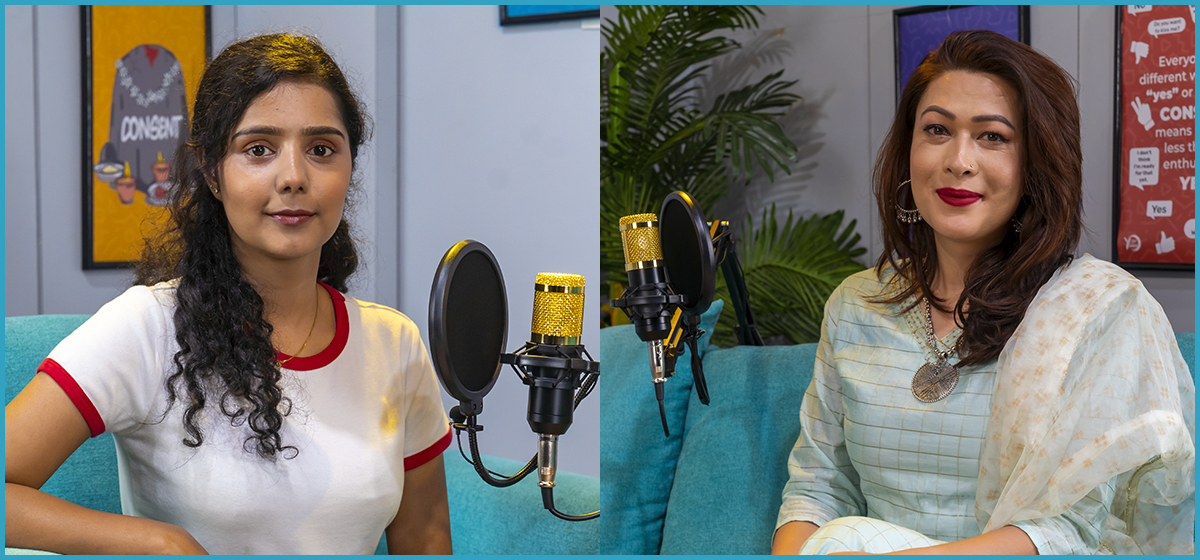Like many Nepali children, I grew up watching Bollywood flicks. As a child, I used to come home from school and flick through the channels and there would always be some film or the other would running on TV. And all the films had the same old premise: A morally good guy (the hero), the pretty subdued heroine, the over-the-top villain and, sometimes, a comic sidekick. At the time, I never found anything wrong with it. Almost all films were made this way (and even continue to be made to this day) and so there was never a way to compare and decide whether or not this was an accurate representation of life. But as I’ve grown older, I’ve come to notice how films have gone on to shape our ideas of masculinity and femininity.
Let’s start with the hero. Where do I begin? The idea of hegemonic masculinity is rampant in TVs and films. Hege monic masculinity, as described by R.W. Connell, is the idea that a dominant socially constructed form of masculinity exists which is “culturally exalted above other expressions of masculinity as well as femininity”. What this means is that a dominant form of masculinity i.e. men should be strong, tough, aggressive, straight, preferably rich is what the society considers to be ideal and other expressions of masculinity (like a gay man or a man who likes to talk about his emotions) are thought to be weak or not ideal.
I have seen this trope mostly in Korean Dramas. The man is always an heir to a big conglomerate, straight (obviously), downright rude to people (including the heroine), tough and aggressive. If the man happens to be poor or slightly different from the ideal concept, he is shown to be a loser or an underdog. Plus, most standard dramas have that slightly effeminate guy who everyone presumes is gay (and are disgusted by it) and, no doubt, he also lands in the loser gang.
Of course, it would be wrong to say that all dramas are promoting this idea. But most cheesy, go-by-the-book standard dramas in Korean, Turkish, Indian and even Nepali soap operas have this standard trope. But be it real life affecting the reel life or vice-versa, people tend to take these ideas to be the norm and scrutinize anyone who doesn’t fit into this model.
Akshay Kumar reacts to boycott 'Raksha Bandhan', 'Laal Singh Ch...

Men are forced to “man up”, solve a misunderstanding with a fight (even though talking might do the job), pretend to not be hurt when they are sad or actually hurt (because the hero always gets up to kill the villain even if he was beaten to pulp), and think that playing the “Tusendere” will get them the girls they like. But this severely misrepresents (or doesn’t represent) other expressions of masculinity like homosexual, transsexual, and transgender men.
The same goes for hegemonic femininity. Society wants the ideal woman to be pretty, soft-spoken, warm, kind, innocent. Those are your traditional heroines. They wait for the hero to arrive to fight the goons off because, of course, she doesn’t have a violent cell in her body.
The heroine gives in to the constant cat-calling, stalking, bullying and harassment from the hero because he fights off the bad men. Just go brush through your beloved old films and check, does the heroine have lines that don’t relate to the men around her? Does she ever talk about her aspirations, do we see her growing as a career-woman, does she ever stands up for herself? Probably not.
One thing to note about hegemonic masculinity and femininity is that they are not based on statistics. They are just an image of what the society thinks all people should strive for. And sadly, films and TVs have been adding fuel to the fire ever since the first film was made in 1888.
If you look at the world now, you can see how far we’ve come from these boxed, conservative ideas of masculinity and femininity. People identify as any gender they want, women will no longer will tolerate sentiments like “women should be caring and nurturing” and men don’t care for ideas like “act like a man” or “boys don’t cry”. People want to be seen as individuals and not be chained by socially constructed ideas of how they should or shouldn’t act based on their gender.
However, I see these ideas of hegemony in gender still being promoted in mainstream media. It pains me to go through Nepali film trailers because most of them are nothing but that. It’s uncreative, lazy and completely detached from the ideas that are being discussed in the international platform. It’s not just us though, it’s most countries and most media.
I think filmmakers, scriptwriters, actors and directors make films and shows like these without realizing their social implications. Most of them want the easy way out—repeat the same old tried and tested method and earn money. But what they don’t realize is that these ideas can have a huge impact on people and their growth. For instance, a teenage girl with acne, seeing a picture-perfect heroine and how men swoon over her, may feel insecure about herself or a closeted-man, in a high-school drama, sees the allegedly gay person being horribly mistreated and may become terrified of his own emotions and feelings, even if he has no control over who he is attracted to.
Films and TV shows are powerful tools to spread and enforce ideas which is why, I believe, it is important to portray characters who are strong as individuals despite their gender. It’s important to showcase characters who can inspire and uplift and don’t convey the wrong message or set a bad example.








































